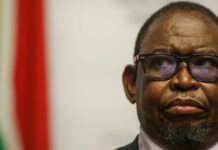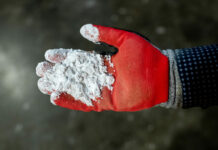
[miningmx.com] — THERE is a new development in the saga involving the Bakubung-ba-Ratheo community and Wesizwe Platinum. A state-appointed administrator has drafted a report that recommends that a lawsuit be instituted against the financial advisers of the Bakubung.
The community has a substantial stake in the R6bn platinum development.
The report, drafted by Abel Dlamini, a chartered accountant, concludes private equity firm Musa Capital gave negligent advice to the community.
Musa helped the community sell a portion of its stake in Wesizwe Platinum, the JSE-listed company constructing the mine, through a series of complicated transactions that raised R527m.
But soon after the money was raised a split erupted within the tribe’s royal family over control of the wealth. The fight has been raging for three years, with accusations that Musa and some members of the royal family having benefited while the majority of the 33 000-strong community remains dirt poor.
Dlamini was appointed to administer the affairs of the tribe last October.
“On the face of it the advice dispensed by Musa regarding the monetisation of the community’s shareholding in Wesizwe and the subsequent advice for the community to invest the proceeds thereof into the Musa Kubu Fund was negligent in that the needs of the community have been completely ignored,’ the Dlamini report says.
“A damages claim against Musa should be investigated as soon as possible before Musa has an opportunity to dissipate assets.’
But Musa has hit back, accusing Dlamini of lacking financial acumen in his conclusion that the firm dished out bad advice to the Bakubung.
“This is an absurd conclusion without any substantiation at all,’ said Musa executive director William Jimerson. “Based on the numerical and accounting inaccuracies in his report it is clear that Mr Dlamini lacks the financial skill or acumen to make such a claim. The Musa Kubu Fund has generated an about 7% dividend yield back to investors matched with an unrealised asset growth in excess of 20%.
“No matter what the asset class, this level of performance is anything but negligent.’
North West Premier Thandi Modise’s spokesperson Cornelius Monama has confirmed receipt of the report.
MEC for local government and traditional affairs Paul Sebego said the report was still to be tabled before the provincial government’s executive. He said claims that the government had dismissed the Dlamini report were untrue.
Dlamini declined to comment and referred questions to Modise’s office.
“No resolution in relation to the appointment of Musa has ever been furnished by the traditional council. At its high point, the community may potentially take action against Musa for dealing in its assets without proper authority,’ the report says.
Jimerson also dismissed this conclusion by Dlamini.
“There are no fewer than five such resolutions for our work done for the community along with numerous video recordings of full community meetings during which our mandate was confirmed,’ he said.
Nearly R300m of the R527m raised was invested in the Musa Kubu Fund, a R470m private equity fund that has invested in companies in emerging markets such as Argentina and Zambia.
The strategy resulted in about 44 million Wesizwe shares belonging to the Bakubung being sold and collaterised in a series of complex transactions.
For three years Musa has been fighting allegations of stealing Bakubung’s wealth and, even though it has disclosed the details of the transactions following numerous court battles, the allegations persist.
“We, as the royal family, are going to do everything in our power to get back the community’s stolen wealth,’ vowed Ignatius Monnakgotla, a member of Bakubung’s royal family opposed to Musa.
Dlamini’s report also accuses Musa of not properly disclosing the fees it charged for implementing the monetisation of Wesizwe’s shares and for administering the proceeds.
In his report Dlamini claims that Musa earned R72m in fees, which amounted to about 13% of total proceeds. But this has been dismissed by Musa, which says it billed the community R55.1m but was only paid R42.9m for its work over a four-year period.
Jimerson said had Musa not executed the monetisation, the monsetised shares would have been worth about R215m today, but the community realised more than R500m in cash and still remains the biggest black economic empowerment shareholder in Wesizwe, with a 9.25% stake in the company.
– City Press










